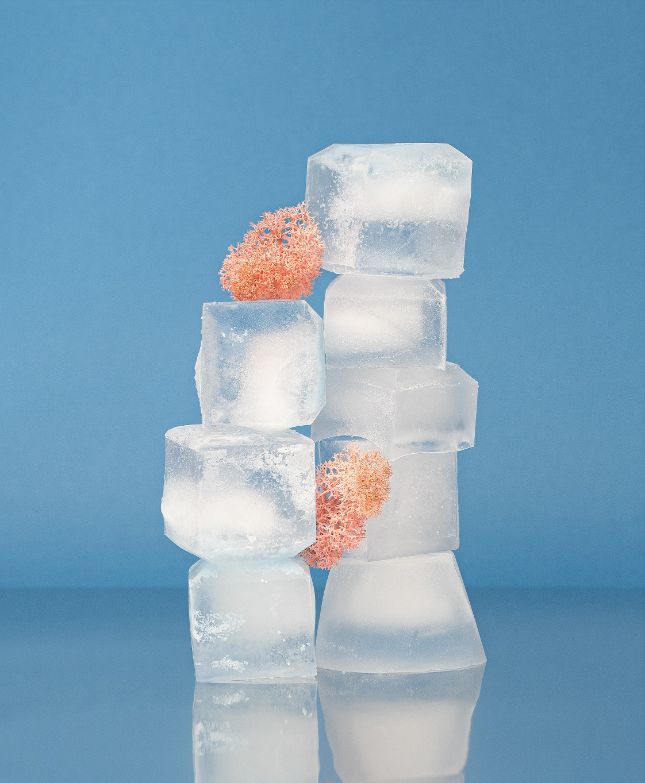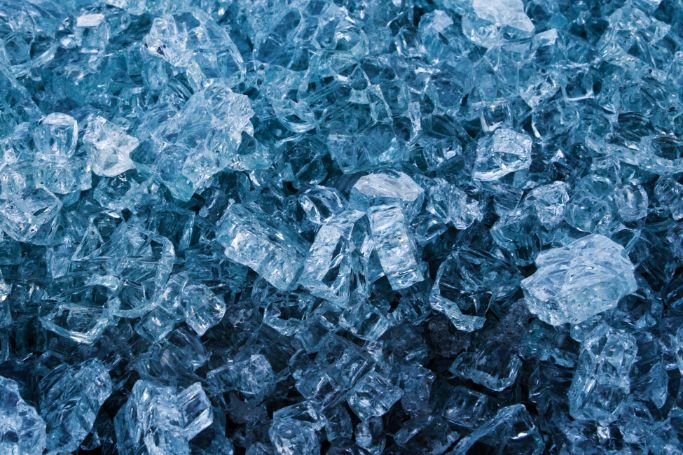To keep your cocktails chilled and your Coca-Cola chilled at a party, you’ll need ice cubes. The last thing you need is to run out of ice while everyone is having a great time! That glass of fine Scotch or iced coffee won’t cool themselves, so you’re faced with the choice of going to the closest gas station for a bag of ice or filling up the trays and waiting.
Unless there’s an ice cube-making machine handy, you have to plan carefully to make sure you’re not left with warm drinks wondering, “How soon does water begin to freeze?” While exact timing will vary depending on many factors, freezing water cubes at room temperature typically takes 3–4 hours. Please continue reading to learn more.
How Long Does It Take To Make Ice Cubes?
In most situations, ice made in a standard ice tray — those plastic models with space for a dozen tapered cubes — takes about three to four hours to freeze in your home freezer. Water freezes at 32 degrees Fahrenheit (0 degrees Celsius), but the time it takes to do so varies depending on a number of factors, so it might take longer in your freezer than it does in your neighbor’s.
The size of the ice cubes is important first. Small ice cubes made with an unusual ice tray will freeze more quickly than large blocks of ice. Since ice starts to freeze from the outside in, the ice’s surface area will also have an impact on how quickly it freezes. This means that a tray of ice with air space between each cube will freeze more quickly than one with just dividers.
Your freezer’s air temperature is important, too. 0 degrees Fahrenheit is the ideal setting for most home freezers. However, if you accidentally raise the air temperature in your freezer while making ice by leaving it open or filling it with food that is at room temperature, the ice-making process will take longer.
You may be interested in How to Make Clear Ice Cubes at Home
What Impacts The Freezing Time Ice Cubes Take To Freeze?
Size Of The Cube
Smaller cubes have a higher surface area to volume ratio, and because more surface area allows heat to escape into the environment, small cubes freeze more quickly. Make smaller ice cubes for faster ice.
Receptacle Material
Some materials are better at transferring heat than others. Heat is transferred from the water away from metals like copper or aluminum. The heat in the water is maintained by the insulating properties of silicone, glass, and plastic. The ice will freeze more quickly in a plastic container than it will in a glass or silicone one.
Minerals And Ions In Water
The freezing point of water is lowered by solutes, minerals, or other substances dissolved in it. The majority of us are familiar with this result of sidewalk salting during the winter. The salt doesn’t actually “melt” the ice;
instead, it dissolves into thin layers of surface meltwater on the sidewalks and lowers its freezing temperature so that the weather must get even colder before the sidewalks can freeze over again. So use purified water to freeze things more quickly.

Altitude
High altitudes have lower air pressure, which slightly lowers the boiling point of liquids and raises their freezing point.
Outside of a physics lab, you probably won’t be able to tell the difference because the change in freezing point at high altitude is not as significant as the change in boiling point. Bring your freezer up to a higher elevation, then, for quicker freezing.
Accompanying Food In The Freezer
Food that is warm or partially frozen reduces the ambient air temperature, which slows the rate of heat transfer away from the water. It will take longer to turn into ice as a result, but the difference won’t be very noticeable. Don’t add food to the freezer, then, to achieve faster freezing.
At What Temperature Does Water Freeze?
The temperature at which water freezes is 32 degrees Fahrenheit, as you may have heard. It depends on how much water you’re talking about, even though this is technically true. A glass of water could freeze in an instant, but a lake or deep pond will take weeks to freeze, even in extremely cold air.
Since a glass of frozen water won’t help you entertain your party guests (and even less so a lake or pond!), you’ll need to focus on the freezing temperature of water in something usable for drinks (i.e. ice cubes).
How Can I Make Water Freeze Faster?
Using hot water and using an ice maker are two fairly straightforward methods for hastening the freezing of water. It is possible to quickly freeze water using liquid nitrogen, of course. But who at home has an extra canister of that lain around?
Try these methods instead:
- Hot water –Unexpectedly, hot water can freeze more quickly than cold water. The Mpemba effect, which was demonstrated through experiments under various circumstances, demonstrates that cold water freezes more slowly than hot water.
- An ice maker –This device uses the ice maker’s compressor coils to freeze water. Water can be quickly frozen using this easy method.
Why Does Hot Water Freeze Faster?
There are numerous explanations for why the Mpemba effect operates in a particular circumstance. Due to the complexity of ice, it can be challenging to pinpoint the specific cause—or set of causes—for the Mpemba effect in a given circumstance. Here are some of the theories scientists have come up with to explain why “hot ice” freezes faster:
- Evaporation: There is less water to freeze because warm water evaporates more quickly than cool water. They freeze more quickly because the resulting ice cubes are a little bit smaller.
- Released Gases: The release of gases and minerals from tap water during boiling may slightly raise the freezing point, causing ice to solidify more quickly than it would with unboiled water. According to this hypothesis, distilled water may also freeze a little bit more quickly than tap water.
- Convection: As the hot water cools, the difference in temperature between the cold surface and the hot bottom of the ice cube tray will cause a faster rate of cooling due to convection (the movement of heat through the fluid).
- Covalent Bonds: A study at Nanyang Technological University in Singapore looked at this issue at a molecular level and discovered that heating shortens the bond between the hydrogen atoms and oxygen atoms in individual water molecules, which lets heat escape the water at a faster rate. Thus, hot water will freeze more quickly than cold.
How Can I Make Ice Melt Slower?
Alternatively, you could make sure that your ice melts as slowly as possible instead of making it freeze more quickly. You’ll need less ice to get through your party if you do it this way. Yes, it is possible to create ice that melts slowly.
Here are some tips:
- Make ice with boiled water – You can lessen air bubbles and impurities by boiling your water before using it to make ice. In addition to producing more transparent ice, this will slow down the melting process.
- Add salt to your water –Your melting process will take longer if you add salt to it. Remember that it will also prolong freezing, so avoid using this trick if you require ice right away.
- Make large ice cubes or spheres – The ice block will melt more slowly if its exposed surface is smaller. Smaller cubes melt more quickly as a result of this. Use an ice ball maker to create lovely, rounded ice spheres that melt gradually for the best ice.


